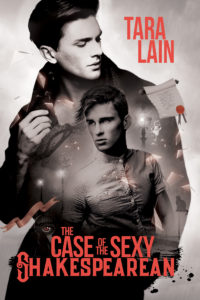 Hi. A couple years ago, I had the privilege of hearing novelist James Scott Bell speak at my OCCRWA chapter meeting (we have a great chapter although I’ve moved away from the area, so i only get to participate online)). James gave us so much useful stuff, i can’t begin to share it all, but each of his ideas has had an impact on my writing ever since, so i want to share it.
Hi. A couple years ago, I had the privilege of hearing novelist James Scott Bell speak at my OCCRWA chapter meeting (we have a great chapter although I’ve moved away from the area, so i only get to participate online)). James gave us so much useful stuff, i can’t begin to share it all, but each of his ideas has had an impact on my writing ever since, so i want to share it.
First, James told us that we are writing about death. A room full of romance writers went, “Huh?” He said physical death is the realm of the suspense writer or the thriller (or romantic suspense I might add), but psychological death is the domain of the romance. In the romance, the lovers will be forever less if they can’t find a way to be together — and that’s big stuff! All scenes rise out of this death.
James taught us that every scene must have an objective, obstacles, and an outcome. This is something a writer feels instinctively but actually hearing it from a teacher helps us bring it into practice. And readers also sense that this is what makes a scene great. The outcome of a scene can be success or setbacks or it can be a success that leads to a setback. In fact, until you get close to the end of the book, a lot of scenes will lead to setbacks.
Then he shared the principle of SUES. No, not lawyerese! It stands for Something Unexpected in Every Scene. This keeps the readers on their toes and looking forward to the next scene. And to help us do that, he gave us the best tip! He said after you’ve written a scene, go back in and look around through the character’s eyes. What could the character see or notice that wasn’t there before? He told us we didn’t have to explain the item then. It could become significant later.
I love this tip and it helped me with a scene i’d written a few days ago and knew was kind of boring. It had some  interesting details in it that would be important later, but the scene didn’t quite have a clear objective. When i came home after the meeting, i immediately went back to the scene and inserted a discovery — an object my hero finds that he doesn’t recognize. He wonders what it is, but that’s all. I’ve used this technique again and again, particularly in my most recent novel, The Case of the Sexy Shakespearean.
interesting details in it that would be important later, but the scene didn’t quite have a clear objective. When i came home after the meeting, i immediately went back to the scene and inserted a discovery — an object my hero finds that he doesn’t recognize. He wonders what it is, but that’s all. I’ve used this technique again and again, particularly in my most recent novel, The Case of the Sexy Shakespearean.
This is a simple tip, but a great one for spicing up a scene. For those of you anxious to have more of this valuable information, let me share the link to James’ fiction writing course HERE.
Thank you all for coming by!
